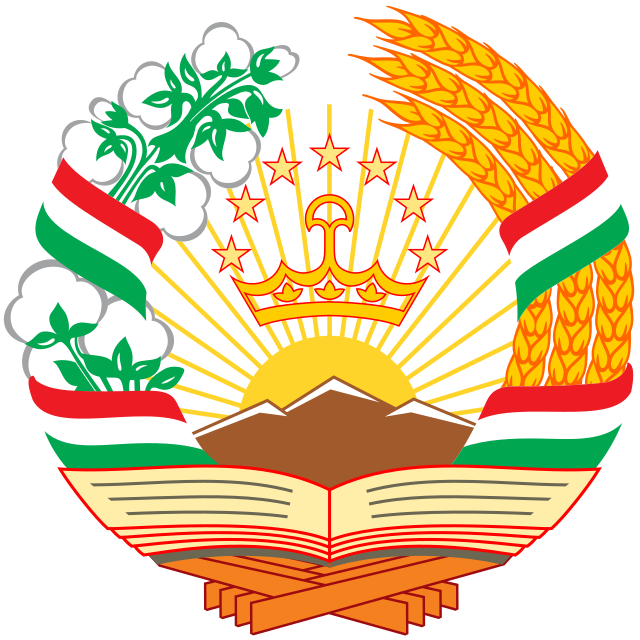Loading AI tools
From Wikipedia, the free encyclopedia
The Constitution of Tajikistan (Russian: Конституция Таджикистана; Tajik: Конститутсияи Ҷумҳурии Тоҷикистон) was adopted on 6 November 1994 and amended three times, on 26 September 1999, on 22 June 2003 and on 22 May 2016.
This article includes a list of references, related reading, or external links, but its sources remain unclear because it lacks inline citations. (June 2023) |
This article is missing information about constitutional violations under Emomali Rahmon. (June 2023) |

The Constitution has the highest legal power, direct application (Article 10) and supremacy on the whole territory of Tajikistan. The Constitution proclaims the establishment of a democratic, legal, secular and unitary State (Article 1), where the State power is based on the principle of separation of powers (Article 9). As the fundamental law of the State, the Constitution defines the structure of the government, basic rights, liberties and responsibilities of its citizens, as well as the powers of the legislative, executive and judicial branches. Article 2 of the Constitution defines Tajik and Russian as the official languages of Tajikistan; the former being the national (state) language and the second being the "language of interethnic communication".
The bicameral Supreme Assembly (the parliament) adopts constitutional laws (Article 61), laws (Article 60) and resolutions (Articles 56-57), while the President adopts decrees and orders (Article 70) and the Cabinet of Ministers (the highest body of the executive branch) adopts resolutions and orders (Article 74).
The Republic of Tajikistan is a sovereign, democratic, constitutional, secular, and unitary state.
The state (national) language of Tajikistan shall be Tajik. Russian shall be the language of international communication. All nationalities and peoples living on the territory of the republic shall have the right to use their mother tongue.
The capital of Tajikistan is the city of Dushanbe.
The life, the honor, the dignity, and other natural human rights are inviolable. Human rights and freedoms are recognized, observed, and protected by the state.
Public life in Tajikistan develops on the basis of political and ideological pluralism. No single ideology, including a religious ideology, may be adopted as the ideology of the state.
The state power is divided into legislative, executive, and judicial branches.
Tajikistan implements a peace-loving policy, respects the sovereignty and independence of other states, determines its external policy on the basis of international norms. War propaganda is prohibited.
The economy of Tajikistan is based on different forms of ownership. The state guarantees freedom of economic and entrepreneurial activity, equality of rights, and legal protection of all forms of ownership, including private property.
The land, the mineral resources, the water, the air space, the animal and plant kingdom, and other natural resources are the exclusive property of the state, and the state guarantees their efficient use in the interest of the people.
Seamless Wikipedia browsing. On steroids.
Every time you click a link to Wikipedia, Wiktionary or Wikiquote in your browser's search results, it will show the modern Wikiwand interface.
Wikiwand extension is a five stars, simple, with minimum permission required to keep your browsing private, safe and transparent.